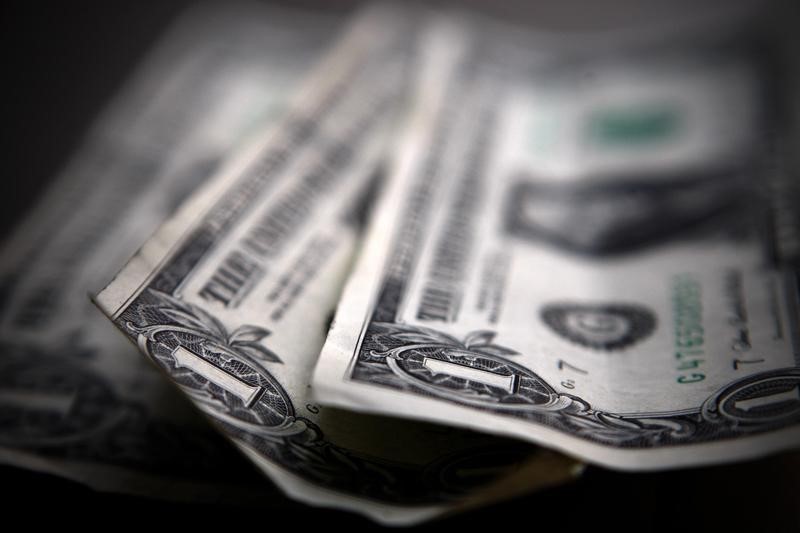US jury says Apple must pay Masimo $634 million in smartwatch patent case
By Peter Nurse
Investing.com - The U.S. dollar edged lower in early European trade Friday, but remains largely in favor ahead of the release of the monthly official U.S. employment report which could reinforce the case for early Federal Reserve interest rate hikes.
At 2:55 AM ET (0755 GMT), the Dollar Index, which tracks the greenback against a basket of six other currencies, traded 0.1% lower at 96.227, but is on course to record broad weekly gains.
Although the dollar is marginally lower Friday, firming expectations that the U.S. central bank could raise rates fairly promptly this year, particularly after the hawkish minutes from the December Fed meeting, are pushing up U.S. yields and the currency.
“The FOMC could begin increasing the policy rate as early as the March meeting in order to be in a better position to control inflation,” said Federal Reserve Bank of St. Louis President James Bullard on Thursday. “Subsequent rate increases during 2022 could be pulled forward or pushed back depending on inflation developments.”
Fed Funds futures have priced in a roughly 80% chance of a Fed hike of 25 basis points by its March meeting.
USD/JPY rose 0.1% to 115.97, with the yen the most prominent casualty of the firmer dollar, hitting a five-year peak at 116.35 earlier this week, with the Bank of Japan seen as very far off raising interest rates.
EUR/USD rose 0.1% to 1.1305, with another surprisingly weak print for German and French industrial output capping gains, GBP/USD climbed 0.1% to 1.3540, while the risk-sensitive AUD/USD dropped 0.1% to 0.7157.
This main focus of the day will be the release of U.S. nonfarm payrolls data, due at 8:30 AM ET (1330 GMT), which are expected to have risen by 400,000 in December, almost doubling November’s disappointing 210,000 rise, with the unemployment rate seen falling to 4.1% from 4.2%.
However, Wednesday’s private payrolls report, which is often used as a guide to the government’s, showed companies added 807,000 jobs last month, more than twice the number expected. Other items such as wage growth will also be parsed for their implications for inflation.
“In order for the U.S. dollar to sustain its gains, the jobs report will need to be so good that it fuels expectations for an accelerated Q1 rate hike and/or four rate hikes this year,” said Kathy Lien, an analyst at BK Asset Management. “That would require job growth to exceed 650,000, the unemployment rate to fall further and average hourly earnings growth to accelerate.”
Which stock should you buy in your very next trade?
AI computing powers are changing the stock market. Investing.com's ProPicks AI includes dozens of winning stock portfolios chosen by our advanced AI.
Year to date, 3 out of 4 global portfolios are beating their benchmark indexes, with 98% in the green. Our flagship Tech Titans strategy doubled the S&P 500 within 18 months, including notable winners like Super Micro Computer (+185%) and AppLovin (+157%).
Which stock will be the next to soar?
